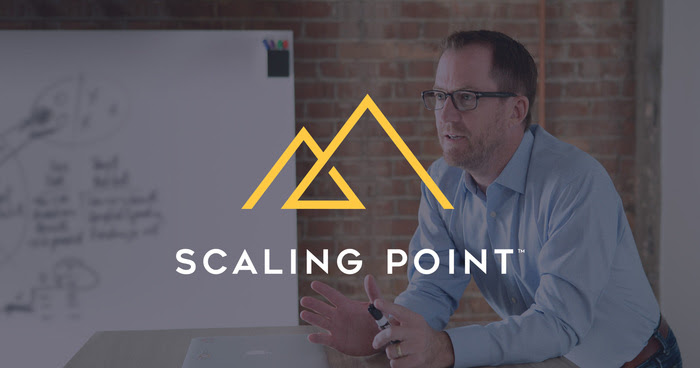When starting a new business, you try many things to learn what really works. Your best ideas may look great on your whiteboard or in a slide deck, but they may not work in the real world.
So you go forth and build your first product, try your first sales and marketing tactics and sell to your first customers. You get it going, but it’s usually not clear EXACTLY what the business is that will scale up.
I call this the “startup ADD” phase, where you try a bunch of experiments while you make a living and survive. Both at the same time, usually as fast as possible.
I was in startup ADD mode at full speed for the last two years before starting Scaling Point. Consulting, mentoring, contributing to the local tech community, meeting with over 400 early-stage CEOs and founders, writing, experimenting with marketing and monthly strategizing.
I made a decent living while figuring out the right mix to launch my company and begin to scale up. It got pretty crazy on some days with all the spinning plates.
Most entrepreneurs enjoy this early ADD phase with all the hard work and challenges. We like to try new things and figure them out quickly.
Starting up is not the problem.
The problem is that “Startup ADD” doesn’t scale.
Eventually, startups need to narrow down the types customers they target, the products they sell, the messages on their website, and the sales and marketing tactics that reliably bring in new customers.
Eventually, you need to shift from startup “ADD” experimentation and decide what your “OCD” focus is so you can scale up with all the stuff that really works, abandoning the experiments that didn’t.
Faster growth is always a result of a renewed focus on the best customers, most valuable product attributes, clearest messages and most effective customer acquisition tactics.
It’s a brutal requirement–a counterintuitive law of nature–to go from ADD experimentation to fanatic OCD focus necessary for serious growth.
Successful companies are known as the best in their market at something important for someone specific.
I call this the Scaling Point.
Name any successful company, product, politician, actor, city, tourist attraction or cultural trend and I’ll show you their narrow focus and fanatical “OCD” in their early days that made them grow from small to big.
They “magically” found their focus (meaning they created it the hard way) and they built their reputations around that.
I know you don’t want to hear this, but here is the reality: they found their Scaling Point when were still small and getting ready to scale up, not after they got big.
Here are a few examples of successful companies that focused first and then grew from small to big:
- Google was just web search.
- Amazon was just books online.
- McDonald’s was just fast hamburgers.
- Walmart was just a discount retailer in rural Arkansas.
- Facebook was just a connections app for college students.
- Starbucks was just premium coffee shops.
Every company getting big VC funding or going public with an IPO has a simple Scaling Point. Every one of them is known as the best at one thing for a specific group of customers. And each one can all be described in 10 words or less.
If you dive deep enough, you can also find their ADD startup experiments before they found their Scaling Point. Facebook’s Mark Zuckerberg created over a dozen products before “The Facebook” took off at Harvard.
These aren’t common knowledge because nobody likes to talk about their early “mistakes” or admit their focus wasn’t divinely revealed to them.
What about all the companies that don’t find their Scaling Point and don’t go from ADD to OCD? We don’t know about these because they never get big and famous. Most startups fail or stop growing and their dreams are never realized. Both of these outcomes are brutally difficult for everyone involved.
You know that new hot restaurant chain that serves three kinds of food to three different audiences? Nope. There isn’t one. Every successful restaurant chain is known for one kind of food for one audience with one type of experience.
Successful companies create a simple, powerful Scaling Point to grow from startup to a big company. It’s a universal precursor of scaled-up growth, not the byproduct of already being big and successful.
Finding, declaring and leveraging your Scaling Point is like a magic trick that works every time.
Only it’s not magic. It’s just not obvious or easy to do.
